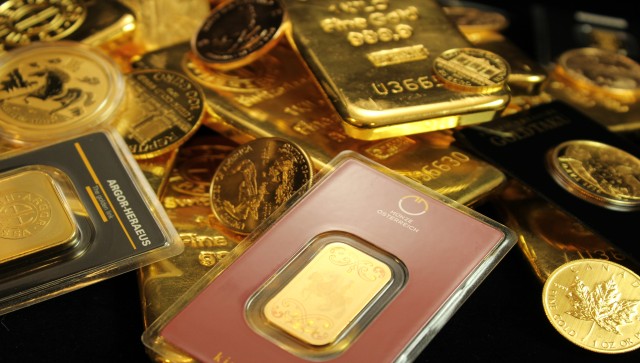The fall in commodity prices like gold and oil should ideally be beneficial to net energy and commodity importers like India, but in reality it is a sign of weakness in the eurozone, the UK and in Japan since the plunge was caused by a global growth scare, said noted economist Nouriel Roubini, famous for predicting the ongoing global financial crisis.
In an interview with CNBC-TV18, Nouriel explains that despite availability of easy money, commodity prices have been falling due to poor macroeconomic data. First, the Eurozone peripheral recession is bottoming out and spreading to even the core of the Eurozone, with France and Germany reporting weak manufacturing numbers. Secondly, despite monetary easing by the Fed, the US economy is actually slowing down.
“The effects of increasing taxes and the sequestration of spending is now having a negative impact on economic growth – slower consumption growth, slower private sector growth and the fiscal austerity is going to have a negative effect on growth,” said Roubini.
And third, growth in China might be slowing down despite another round of credit fuel investment, while other BRIC countries too are registering weak growth.
Hence, a growth scare and actual weakness in advanced economies implies markets are actually factoring in a softer global economic growth, which is bad news for Asia and especially India, said Roubini. Hence if that growth scare is more than a scare, that is going to affect earnings and profitability, which is a negative for everyone.
“The reason why central banks keep on printing money is because they worry about downside risk to economic growth.But if liquidity spreads because of the downside risk to global economic growth and if the downside risk actually materialises, in spite of liquidity, then you could, over time, have a correction in global equities,” Roubini added.
In fact, he says the biggest reason for gold going down is dis inflationary pressures in global economy. The reason why central banks print so much money is in hope of some inflation which could spur spending, demand and hence growth. But despite so much quantitative easing, there has been no inflation and hence holding gold because of worries about hedge against inflation are fast receding. global inflation.
This increase in liquidity has now restored economic growth both in advanced economies and emerging markets and there are other riskier assets that can give you a greater return than gold like US and global equities. For example, gold doesn’t have any income – doesn’t pay coupon, doesn’t give you dividend like equities. It is only based on having a capital gain if gold prices go higher. While equities provide you potentially both a capital gain and dividend; bond can give you a capital gain if the price rises and they give you an income in terms of a coupon.
So in some sense actually the fall in price of gold is a good signal because it says that inspite of the recent concern about the global economic growth, there is some amount of global economic recovery and there are other real assets like good corporations in advance economies and emerging markets, good bonds in advance economies and emerging markets, real estate and some commodities that can give you a higher return.
However, he cautions that while on one hand existing quantitative easing and zero policy rate will try and support recovery, on the other side, a lot of this liquidity is not creating credit for the real economy and is going into asset prices, greater risk taking and greater leveraging into the financial system. And over time, these low rates are going to cause credit, asset and equity bubbles which may become dangerous.
)
)
)
)
)